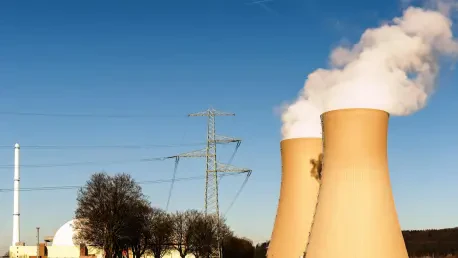In an era where energy demands are skyrocketing due to the rapid expansion of data centers and artificial intelligence infrastructure, the nuclear power industry stands at a critical juncture, seeking innovative ways to enhance efficiency while adhering to stringent safety standards. A startup named Nuclearn has emerged as a key player in this space, harnessing AI to revolutionize operational processes within nuclear facilities. With a recent infusion of $10.5 million in Series A funding, led by Blue Bear Capital and supported by investors like AZ-VC, Nucleation Capital, and SJF Ventures, the company is poised to scale its impact. Already deployed in over 65 nuclear reactors globally, Nuclearn’s technology signals a growing acceptance of AI as a tool for streamlining tasks in an industry historically cautious about adopting new technologies. This development raises intriguing questions about how AI can modernize traditional energy sectors without compromising safety.
AI’s Role in Nuclear Operations
Enhancing Efficiency Through Automation
The integration of artificial intelligence into the nuclear power sector represents a significant shift toward operational modernization, focusing on repetitive and time-consuming tasks such as documentation and data management. Nuclearn’s AI tools are designed to act as supportive systems, automating mundane processes that often bog down human staff, thereby freeing them to focus on more critical responsibilities. Unlike direct reactor control, which remains strictly under human oversight, these tools function as a kind of digital assistant, handling administrative workloads with precision. The approach has gained traction because it aligns with the industry’s rigorous safety protocols, ensuring that technology serves as an aid rather than a decision-maker. Founders Bradley Fox and Jerrold Vincent have emphasized that their systems are treated like familiar software tools, subject to strict regulatory scrutiny by bodies like the Nuclear Regulatory Commission, which prioritizes human accountability in all operations.
Balancing Innovation with Safety Protocols
Safety remains the cornerstone of nuclear operations, and the cautious optimism surrounding AI adoption reflects a deliberate balance between innovation and risk management. Nuclearn’s technology is built to refer uncertain tasks back to human operators, ensuring that reactor staff retain ultimate control by setting automation thresholds based on their comfort levels and the reliability of the AI models. This framework positions AI as a junior partner in the operational hierarchy, incapable of overriding human judgment. Industry stakeholders view this as a pragmatic approach, allowing facilities to leverage cutting-edge tools while maintaining the stringent oversight necessary in such a high-stakes environment. As a result, the technology is confined to non-critical functions, a consensus that underscores the sector’s commitment to safeguarding against potential errors or unforeseen technological failures, even as efficiency gains become increasingly evident.
Nuclearn’s Journey and Industry Impact
From Palo Verde to Global Reach
Nuclearn’s story began at the Palo Verde Nuclear Generating Station near Phoenix, where co-founders Bradley Fox and Jerrold Vincent first developed data science and AI solutions to address inefficiencies in operational workflows. Their early success in optimizing processes at this facility sparked interest from other nuclear plants seeking similar improvements, leading to the formal launch of the startup during the challenging times of the COVID-19 pandemic. The company’s growth since then has been remarkable, with its AI tools now implemented in over 65 reactors worldwide, a testament to the scalability and relevance of their solutions. Nuclearn offers tailored AI models trained on nuclear-specific terminology, with deployment flexibility ranging from cloud-based platforms to on-site hardware, catering to the industry’s stringent security demands. This adaptability has positioned the startup as a trusted partner in a sector often resistant to external innovation.
Shaping the Future of Energy and Technology
The broader context of Nuclearn’s rise highlights a symbiotic relationship between nuclear power and the tech industry, as major players like Meta, Google, and Microsoft increasingly turn to nuclear energy to power their AI-driven data centers. This trend underscores a mutual dependency: while tech giants seek reliable, sustainable energy sources, the nuclear sector looks to AI for modernization. Nuclearn capitalizes on this intersection by providing customized solutions that enhance productivity without encroaching on safety-critical areas. The $10.5 million funding round validates investor confidence in this niche application, signaling a belief that AI can transform traditional industries if applied thoughtfully. Looking ahead, the cautious yet progressive integration of AI into nuclear operations marks a pivotal moment, reflecting an industry willing to evolve while upholding its core principles of safety and oversight, setting a precedent for how technology and tradition can coexist.









